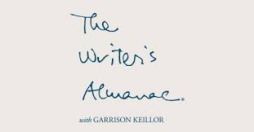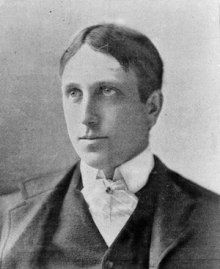Wasn’t I just blogging about celebrities pushing media myths?
Today brought another entry to that dubious lineup.
On his “Writer’s Almanac” podcast that airs on NPR, Garrison Keillor blithely retold the hoary media myth of William Randolph Hearst’s vow to “furnish the war” with Spain.
The occasion for Keillor’s myth-indulgence was the 152d anniversary of Hearst’s birth in San Francisco.
“In 1898,” Keillor smugly told listeners, “Hearst sent the artist Frederic Remington to Cuba to cover the war. And Remington wrote home, ‘There is no war. Request to be recalled.’
“And he was told, ‘You furnish the pictures, I’ll furnish the war.’ And the Hearst newspapers did their best to promulgate what came to be called the Spanish-American War.”
The tale is one of the best-known in American journalism. And it is almost certainly apocryphal, for reasons discussed in my 2010 media-mythbusting book, Getting It Wrong.
Let’s revisit some of the many reasons.
For starters, Hearst denied sending such a message (a denial usually overlooked or ignored) and Remington apparently never discussed it.
What’s more, as I point out in Getting It Wrong, the anecdote lives on despite the absence of supporting documentation: The telegrams that Remington and Hearst supposedly exchanged have never turned up.
Not only that, but the Spanish authorities who controlled incoming and outbound telegraphic traffic in Cuba surely would have intercepted and called attention to such an incendiary message, had it been sent.
The sole original source for the “furnish the war” anecdote was On the Great Highway, a slim volume of reminiscences published in 1901. The author was James Creelman, a portly, cigar-chomping journalist prone to hyperbole and exaggeration.
Creelman did not explain in On the Great Highway how or where he learned about the purported Remingt0n-Hearst exchange.
Nor did he say exactly when the presumed Remington-Hearst exchange took place, writing only that it was “some time before the destruction of the battleship Maine in the harbor of Havana” in mid-February 1898. The only time Remington was in Cuba before the explosion that destroyed the Maine was in January 1897, on assignment for Hearst’s flamboyant New York Journal to draw sketches of the Cuban rebellion against Spain’s colonial rule.
The rebellion was the antecedent to the Spanish-American War of 1898.
The timing of Remington’s trip to Cuba in early 1897 further undercuts the “furnish the war” anecdote: It presents an irreconcilable internal inconsistency, as it would have been absurd for Hearst to have vowed to “furnish the war” because war — specifically, the Cuban rebellion — was the very reason he sent Remington to Cuba in the first place.
As Keillor’s podcast suggests, the “furnish the war” anecdote is a delicious tale, easy to retell, and easy to believe. Like nearly all media myths, it resides on the cusp of plausibility; it corresponds well to the superficial and misleading image of Hearst as war-monger, as the unscrupulous newspaper publisher who fomented the Spanish-American War.
And that, too, is a tenacious media-driven myth.
More from Media Myth Alert:
- Remembering the ‘Maine,’ Hearst, and Remington
- The Remington-Hearst media myth invoked anew
- Yellow journalism: A sneer is born
- Obama, journalism history, and ‘folks like Hearst’
- No, Politico: Hearst did not cause the Spanish-American War
- ‘Furnish the war’ media myth infiltrates NPR tribute to Evelyn Waugh’s ‘Scoop’
- Two myths and today’s New York Times
- 1897 flashback: Committing ‘jailbreaking journalism’
- ‘War Lovers’: A myth-indulging disappointment
- Halberstam the ‘unimpeachable’? Try myth-promoter
- Katharine Graham, the ‘Economist,’ and bringing down Nixon
- Getting It Wrong goes on Q-and-A



[…] Cronkite Moment of 1968 or the dubious tale about William Randolph Hearst’s vow to “furnish the war” with Spain in […]
[…] Hearst, Garrison Keillor, and ‘furnish the war': Celebrities and media myths […]
[…] Hearst, Garrison Keillor, and ‘furnish the war': Celebrities and media myths […]
[…] all, the quotation isn’t as well-known, or invoked as often, as “furnish the war.” But it still resonates and still circulates — as suggested by the sneering essay […]
[…] Hearst, Garrison Keillor, and ‘furnish the war’: Celebrities and media myths […]
[…] Celebrities pushing media myths: Garrison Keillor and Hearst’s “furnish the war” v… (posted April 29): I noted in 2015 that the mythical tale about William Randolph Hearst’s […]
[…] Hearst, Garrison Keillor, and ‘furnish the war’: Celebrities and media myths […]
[…] Joe Biden, radio talk show host Rush Limbaugh, former President Jimmy Carter, humorist Garrison Keillor, and author and TV commentator Juan […]
[…] purported vow of William Randolph Hearst to “furnish the war” with Spain, supposedly contained in a telegraphic exchange with Frederic Remington, an artist on […]
[…] offers up, as if it were true, the fake tale of William Randolph Hearst’s vowing to “furnish the war” with […]
[…] history. One example it offered was how the publisher William Randolph Hearst’s had vowed to “furnish the war” with Spain. As historical myth-buster W. Joseph Campbell persuasively illustrates on his blog, […]
[…] brutal history of fake news.” Politico cited, as if it were true, the fake tale of Hearst’s “furnish the war” […]
[…] hoary tale of William Randolph Hearst’s warmongering vow to “furnish the war” with Spain at the end of the Nineteenth Century — a media myth that, zombie-like, […]
[…] Hearst, Garrison Keillor, and ‘furnish the war’: Celebrities and media myths […]
[…] an essay today in which he imagines returning to New York in 1961, storyteller Garrison Keillor demonstrates anew a fondness for seasoning narratives with media […]
[…] Minnesota Public Radio dismissed him for inappropriate workplace behavior, storyteller Garrison Keillor wrote an essay in which he imagined paying a return visit to New York City of […]
[…] Hearst, Garrison Keillor, and ‘furnish the war’: Celebrities and media myths […]
[…] that includes writers for the Washington Post, Politico, and Forbes, as well as James Fallows, Garrison Keillor and Evan Thomas, we add the executive editor of the Pittsburgh Post-Gazette, David […]
[…] let’s again unpack Keillor’s […]
[…] genuine in innumerable histories, biographies, newspaper and magazine accounts, broadcast reports, podcasts, and essays posted online — the evidence is overwhelming the publisher made no such […]
[…] genuine in innumerable histories, biographies, newspaper and magazine accounts, broadcast reports, podcasts, and essays posted […]